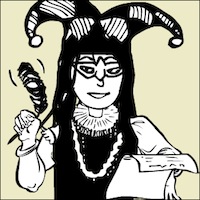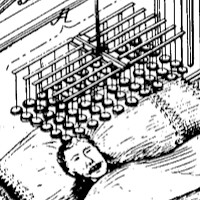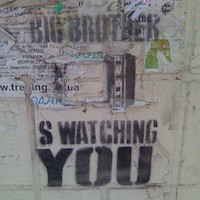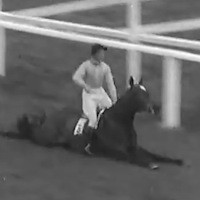Rosenberg's Sentenced (April 5, 1951)

In 1945, the United States—in an unprecedented display of power and technology—dropped an atomic bomb on the Japanese cities of Hiroshima and Nagasaki. In the years prior, the Union of Soviet Socialist Republic used Americans as spies to gain the knowledge of this atomic weapon. Among those allegedly in the ranks was an unassuming couple named Julius and Ethel Rosenberg.
Back during the Revolutionary War, a man by the name of Benedict Arnold became the first “traitor” to the United States. During his time in the military, he made amazing accomplishments and very shrewd tactical decisions. He fell into some trouble, however, with the president of the executive council in Pennsylvania. It was a personal war that turned very ugly. By the end of the embittered trials, Arnold was left feeling rejected and spurned by the very government he had signed on to protect and uphold—even though he had been found innocent of the charges brought against him. By that time, the British army had already been in contact with him, sweetening his thoughts with promises of military power and positioning as well as future negotiations with the American government to come to an amicable relationship. Having decided to give the British the Hudson River, he earned himself a position in charge of West Point. His plan, however, was foiled when his British contact was captured.
Benedict Arnold’s treason against the newly forming America was great, indeed. It directly affected the lives of hundreds of soldiers and the well-being of the young nation. He, however, lived out his days in remorse and shame in London. Julius and Ethel Rosenberg’s alleged crimes of treason were vastly different. And they were not given the option to live out their days in remorse and shame. They were executed.
In 1944, an intercepted transmission from Russia identified an American spy as “the LIBERAL” and “the ANTENNA” and also identified his wife as “LIBERAL’s wife, Ethel.” From this information, the FBI concluded “the Liberal” was Julius Rosenberg. At the trial, Ethel’s brother, David Greenglass (a known Soviet spy), testified that his sister typed notes in the Rosenberg’s apartment which had to do with the nuclear bomb that dropped on Nagasaki. Neither of the Rosenberg’s would confirm or deny their involvement with the Communist party, choosing instead to use the 5th Amendment of the Constitution.
The jury found them guilty of their charges. Judge Kaufman would be the one to deliver the sentencing on April 5, 1951. When he emerged that day, he sentenced them to the highest penalty allowed by law: death. There are only two crimes in this country for which the Death Penalty may be sought. They are murder and treason.
Looking back over the historical facts of the trial and the time period, however, one can’t help but wonder and question the validity of the trial itself. Greenglass was a known spy and the prosecution’s star witness. He, however, had been given an amazing deal: he would get ten years in jail for his espionage and his wife, also a known spy, would not be indicted. Also, when the Rosenberg’s had been arrested, several things had occurred that sent the country into a panic: in August of 1949, Russia detonated their first atomic weapon; Alger Hiss had been convicted of perjury in another spy case; Senator McCarthy revealed the existence of American spies throughout the world (jeopardizing their lives); Klaus Fuchs had been convicted in British courts for spying; and the clincher, the Korean War began.
At the sentencing, several sources quote Judge Kaufman as saying:
The work of two individuals—two average, American citizens—the work that later was proven to be inconsequential to the development of the Russian nuclear program—caused the outbreak of the Korean War. Ethel Rosenberg, it later came out, had never actually been a spy. In the intercepted transmissions, it was stated she “did not work.” Spies used code names (like “the LIBERAL”) and Ethel had never been issued one. She was simply referred to as “Ethel.” Still, she was convicted, along with her husband, and sentenced to die in the electric chair. Sometimes, Justice turns a blind eye to Truth for a better bedmate, such as politics.
Back during the Revolutionary War, a man by the name of Benedict Arnold became the first “traitor” to the United States. During his time in the military, he made amazing accomplishments and very shrewd tactical decisions. He fell into some trouble, however, with the president of the executive council in Pennsylvania. It was a personal war that turned very ugly. By the end of the embittered trials, Arnold was left feeling rejected and spurned by the very government he had signed on to protect and uphold—even though he had been found innocent of the charges brought against him. By that time, the British army had already been in contact with him, sweetening his thoughts with promises of military power and positioning as well as future negotiations with the American government to come to an amicable relationship. Having decided to give the British the Hudson River, he earned himself a position in charge of West Point. His plan, however, was foiled when his British contact was captured.
Benedict Arnold’s treason against the newly forming America was great, indeed. It directly affected the lives of hundreds of soldiers and the well-being of the young nation. He, however, lived out his days in remorse and shame in London. Julius and Ethel Rosenberg’s alleged crimes of treason were vastly different. And they were not given the option to live out their days in remorse and shame. They were executed.
In 1944, an intercepted transmission from Russia identified an American spy as “the LIBERAL” and “the ANTENNA” and also identified his wife as “LIBERAL’s wife, Ethel.” From this information, the FBI concluded “the Liberal” was Julius Rosenberg. At the trial, Ethel’s brother, David Greenglass (a known Soviet spy), testified that his sister typed notes in the Rosenberg’s apartment which had to do with the nuclear bomb that dropped on Nagasaki. Neither of the Rosenberg’s would confirm or deny their involvement with the Communist party, choosing instead to use the 5th Amendment of the Constitution.
The jury found them guilty of their charges. Judge Kaufman would be the one to deliver the sentencing on April 5, 1951. When he emerged that day, he sentenced them to the highest penalty allowed by law: death. There are only two crimes in this country for which the Death Penalty may be sought. They are murder and treason.
Looking back over the historical facts of the trial and the time period, however, one can’t help but wonder and question the validity of the trial itself. Greenglass was a known spy and the prosecution’s star witness. He, however, had been given an amazing deal: he would get ten years in jail for his espionage and his wife, also a known spy, would not be indicted. Also, when the Rosenberg’s had been arrested, several things had occurred that sent the country into a panic: in August of 1949, Russia detonated their first atomic weapon; Alger Hiss had been convicted of perjury in another spy case; Senator McCarthy revealed the existence of American spies throughout the world (jeopardizing their lives); Klaus Fuchs had been convicted in British courts for spying; and the clincher, the Korean War began.
At the sentencing, several sources quote Judge Kaufman as saying:
[Your crime is worse than murder, for you put] into the hands of the Russians the A-bomb years before our best scientists predicted Russia would perfect the bomb has already caused, in my opinion, the Communist aggression in Korea, with the resultant casualties exceeding 50,000 and who knows but what that millions more innocent people may pay the price of your treason. Indeed, by your betrayal, you undoubtedly have altered the course of history to the disadvantage of our country.
The work of two individuals—two average, American citizens—the work that later was proven to be inconsequential to the development of the Russian nuclear program—caused the outbreak of the Korean War. Ethel Rosenberg, it later came out, had never actually been a spy. In the intercepted transmissions, it was stated she “did not work.” Spies used code names (like “the LIBERAL”) and Ethel had never been issued one. She was simply referred to as “Ethel.” Still, she was convicted, along with her husband, and sentenced to die in the electric chair. Sometimes, Justice turns a blind eye to Truth for a better bedmate, such as politics.
You Should Also Read:
Rosenberg's Trial
Wikipedia on the Rosenberg's
Offical Information on the Trial

Related Articles
Editor's Picks Articles
Top Ten Articles
Previous Features
Site Map
Content copyright © 2023 by Christa Mackey. All rights reserved.
This content was written by Christa Mackey. If you wish to use this content in any manner, you need written permission. Contact Lane Graciano for details.







